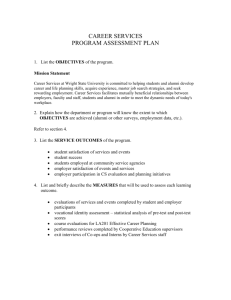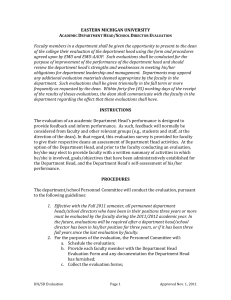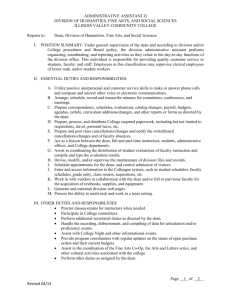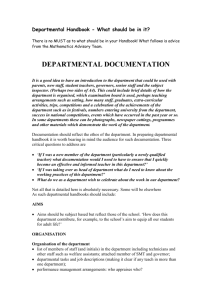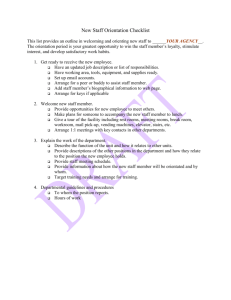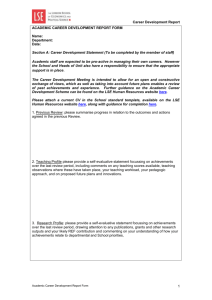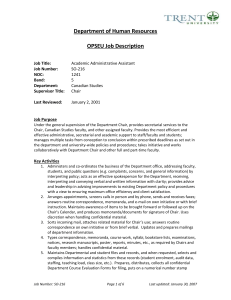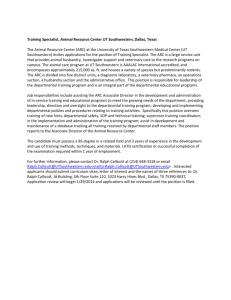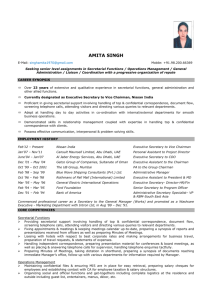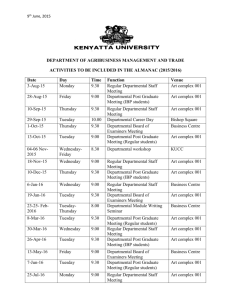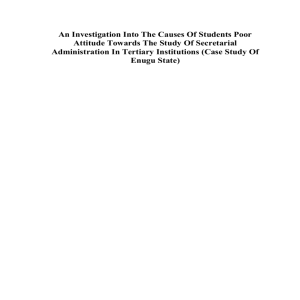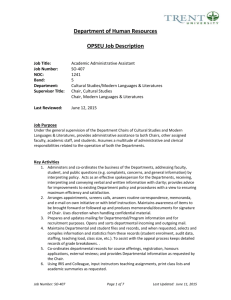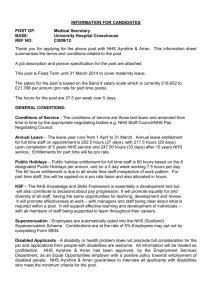Academic Secretarial Priorities
advertisement
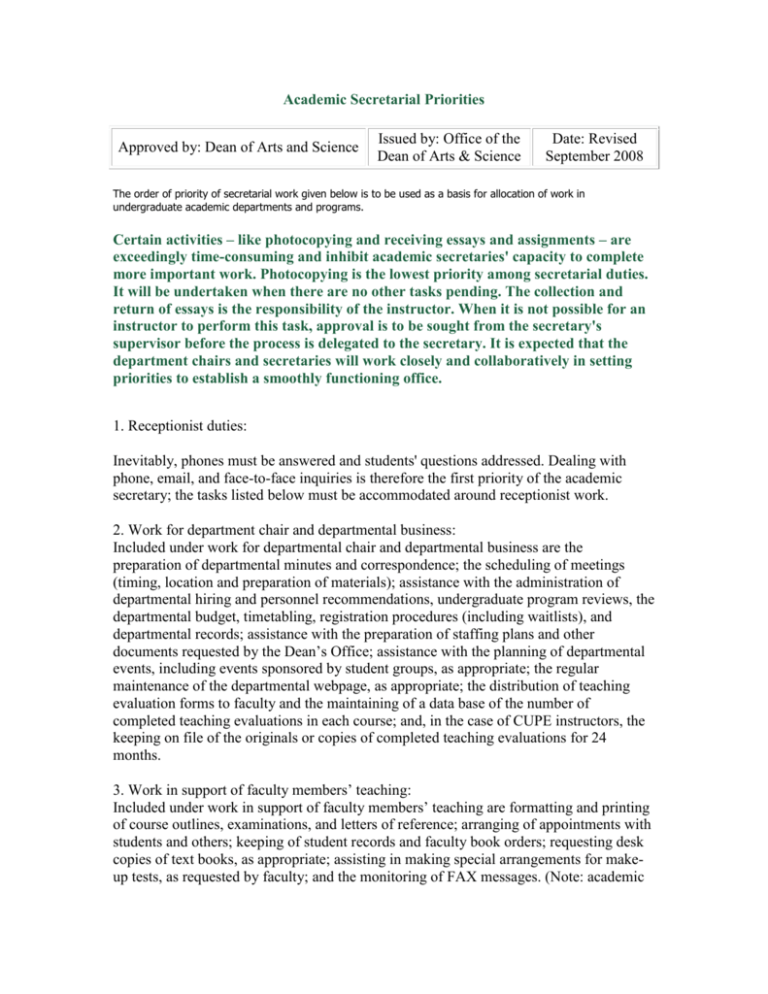
Academic Secretarial Priorities Approved by: Dean of Arts and Science Issued by: Office of the Dean of Arts & Science Date: Revised September 2008 The order of priority of secretarial work given below is to be used as a basis for allocation of work in undergraduate academic departments and programs. Certain activities – like photocopying and receiving essays and assignments – are exceedingly time-consuming and inhibit academic secretaries' capacity to complete more important work. Photocopying is the lowest priority among secretarial duties. It will be undertaken when there are no other tasks pending. The collection and return of essays is the responsibility of the instructor. When it is not possible for an instructor to perform this task, approval is to be sought from the secretary's supervisor before the process is delegated to the secretary. It is expected that the department chairs and secretaries will work closely and collaboratively in setting priorities to establish a smoothly functioning office. 1. Receptionist duties: Inevitably, phones must be answered and students' questions addressed. Dealing with phone, email, and face-to-face inquiries is therefore the first priority of the academic secretary; the tasks listed below must be accommodated around receptionist work. 2. Work for department chair and departmental business: Included under work for departmental chair and departmental business are the preparation of departmental minutes and correspondence; the scheduling of meetings (timing, location and preparation of materials); assistance with the administration of departmental hiring and personnel recommendations, undergraduate program reviews, the departmental budget, timetabling, registration procedures (including waitlists), and departmental records; assistance with the preparation of staffing plans and other documents requested by the Dean’s Office; assistance with the planning of departmental events, including events sponsored by student groups, as appropriate; the regular maintenance of the departmental webpage, as appropriate; the distribution of teaching evaluation forms to faculty and the maintaining of a data base of the number of completed teaching evaluations in each course; and, in the case of CUPE instructors, the keeping on file of the originals or copies of completed teaching evaluations for 24 months. 3. Work in support of faculty members’ teaching: Included under work in support of faculty members’ teaching are formatting and printing of course outlines, examinations, and letters of reference; arranging of appointments with students and others; keeping of student records and faculty book orders; requesting desk copies of text books, as appropriate; assisting in making special arrangements for makeup tests, as requested by faculty; and the monitoring of FAX messages. (Note: academic secretaries are to provide these forms of teaching support for both full-time and part-time faculty.) 4. Work in support of university committee work: Included under work in support of university community work are the preparation and distribution of documents for committee chairs and scheduling of committee meetings where the university committee has no designated administrative support. 5. Work in support of general university and community affairs: Secretarial assistance can be provided when a faculty member is involved as part of his or her university duties with an outside organization such as COU, the Science Fair, or the United Way campaign. Secretarial support is not provided in situations where faculty members have, on their own initiative, undertaken some personal voluntary involvement with an outside organization. 6. Work in support of faculty members’ research: Subject to reasonable advance notice, secretarial assistance will be provided for the preparation of funding proposals and research manuscripts. Applications for external grants will take precedence over applications for internal grants. It is the faculty member’s responsibility to provide sufficient notice and sufficient time in cases in which deadlines have to be met. Under normal circumstances, faculty members are expected to use their voice mail system. Telephone call forwarding by a faculty member to his or her secretary is to be used only with prior notification to the secretary and the chair, and with a clear indication of the duration of the proposed arrangement. Call forwarding to a secretary is not to be used for extended periods of time when a faculty member other than the chair is away from the University. September, 1994
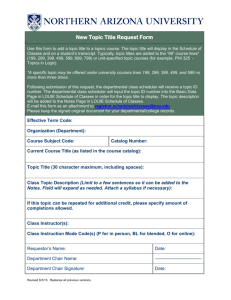
![Academic Support Secretary [Final]](http://s3.studylib.net/store/data/007059557_1-4ecf935e6f5004452a5d37b926c1c552-300x300.png)


